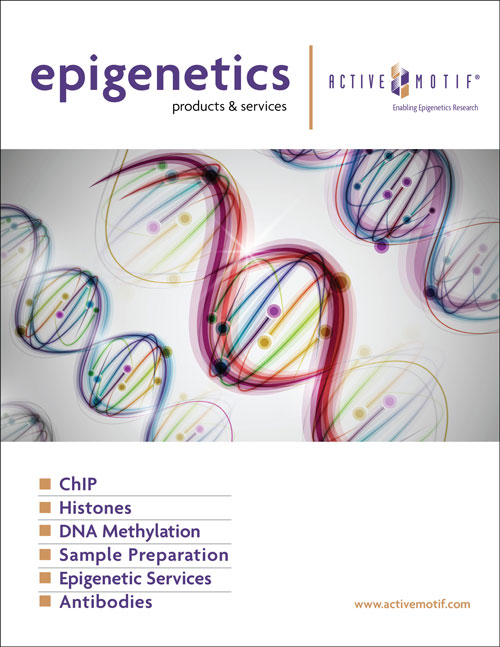<< Back to Targets & Applications Home Page
NFkB Research Products
NFκB proteins are among the most widely studied transcription factors because they have been shown to regulate a variety of genes that control inflammation, cell proliferation and cell survival. In addition, aberrant activity of NFκB has been observed in many human cancers.
Active Motif offers a large number of products that utilize a variety of different methods to study the NFκB pathway and the many genes, proteins and compounds involved in its regulation. Brief summaries for some of these products are shown below, with links to individual product pages for more information.
TransAM® Transcription Factor AssaysTransAM® Kits are DNA-binding ELISAs that facilitate the study of transcription factor activation in mammalian tissue and cell extracts. Assays are available for NFκB p50, p52 & p65, as well as over 40 other transcription factors. More > |
FACE™ NFκB p65 ProfilerFACE™ Kits are cell-based ELISAs that can detect protein phosphorylation directly in the cell, without the need to make extracts, run gels or blot membranes. The FACE™ NFκB p65 Profiler enables you to compare the levels of NFκB p65 phosphorylated at Ser468 & Ser536. More > |
High Yields of Specifically Segregated ExtractsThe Nuclear Extract Kit isolates high-quality nuclear, cytoplasmic or whole-cell extract from mammalian cell or tissue samples. This eliminates the need for optimizing reagents and protocols, and ensures you get high yields from specific cellular compartments every time. More > |
|
High-quality Transcription Factor AntibodiesActive Motif offers a broad line of mono- and polyclonal antibodies directed against Rel/NFκB, IκB and IKK proteins, as well as many other transcription factors. Each antibody has been highly characterized, and have been validated for use in ChIP, ChIP-Seq, Western blot, IF, IP IHC or EMSA. More > |
Gelshift™ Chemiluminescent EMSA
The electrophoretic mobility shift assay (EMSA), or gel shift, has long been used to study protein-DNA binding events. Our Gelshift™ Chemiluminescent EMSA greatly improves on the technique by replacing the use of radioactivity with a more sensitive, chemiluminescent detection method. More > |
Ready-to-Assay Cellular Extracts
Active Motif offers over 100 ready-to-use nuclear, cytoplasmic and whole-cell extracts, many prepared following stimulation to activate specific transcription factors. They are ideal for a variety of applications, including as positive controls in TransAM®, gelshift and supershift assays, & in Western blots. More > |
Recombinant Proteins
Active Motif carries a large number of Recombinant Proteins, including a wide variety of transcription factors, nuclear receptors and cell signaling proteins for use in various transcription and DNA binding assays. Our NFκB p65 & NFκB p50 proteins have been validated for use as standards in our TransAM NFκB Transcription Factor ELISAs. More > |
Nuclear Complex Co-IP KitThe Nuclear Complex Co-IP Kit provides an optimized nuclear extraction method that preserves fragile complexes of DNA-binding proteins. This makes it ideal for the study of protein/protein interactions in the nucleus. More > |
|





